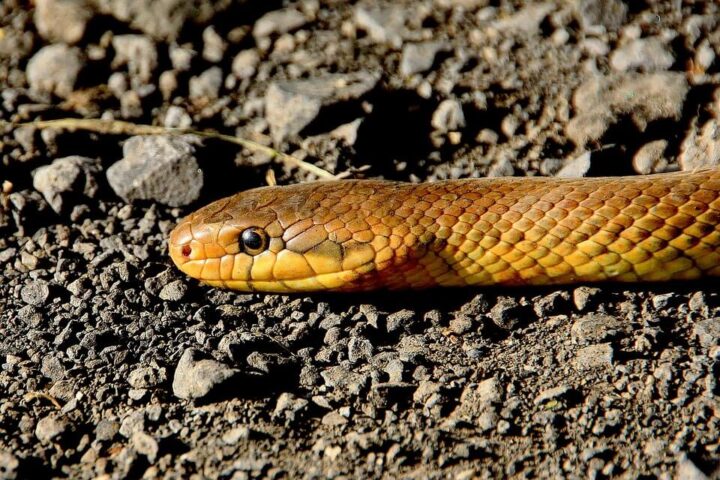As the days get warmer there’s nothing better than being outside with your pet, whether that means playing with your cat or dog in the garden or taking your pooch to the beach or woods to play some games. Unfortunately summer days don’t only bring out ticks but snakes too.
As dogs are inquisitive and love to have a good sniff around it’s a good idea to keep them on a lead when walking in bushland, beach dunes or near water in warmer months. Cats are born to hunt and a wiggling snake will look like a fun thing to pounce on. Keeping your garden clear of long grass and rubbish will help eliminate places snakes may like to hide in.
What to do if your pet is bitten by a snake
If you suspect your pet has been bitten by a snake you should keep your pet still and try to keep them as quiet as you can. It is vital that you take your pet to a vet as quickly as possible. The sooner your pet is treated, the better their chances of survival. If possible call us immediately to let us know you are on your way. We can then have our team ready for your arrival.
If you are some distance from your vet and if possible, you can apply a pressure bandage – a firm bandage over and around the bite site. This will help to slow the venom spreading to the heart. Do NOT wash the wound or apply a tourniquet.
Do not put yourself or others at risk by attempting to catch, kill or look for the snake.
Signs your pet may have been bitten by a snake
As you pet will usually go towards the snake face first dogs and cats are most often bitten around the head and front limbs. If you notice any of the signs below even if you haven’t seen your pet get bitten call us immediately.
- Sudden weakness followed by collapse.
- Shaking or twitching of the muscles.
- Vomiting.
- Dilated pupils not responsive to light.
- Blood in the urine.
- In the later stages paralysis may occur.
What happens at the hospital?
First our vet will examine your pet and determine the best course of action. Treatment usually consists of intravenous fluids and antivenom to neutralise the snake venom in your pet’s body. Some patients require multiple vials of antivenom.
Your pet will require critical care and usually several days in hospital where they will be monitored closely. They may need further diagnostic tests and medication.
Please note if your pet is given antivenin it does not protect them from further snake bite venom.


